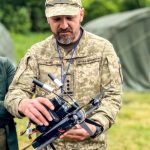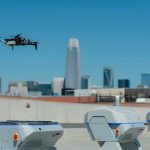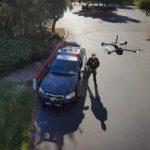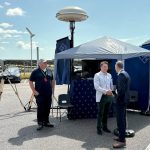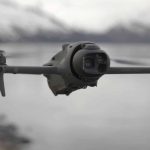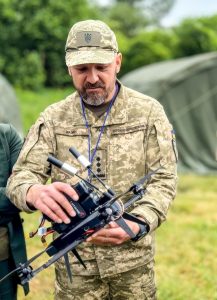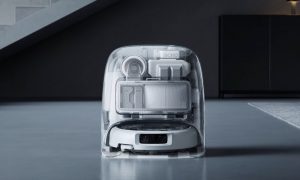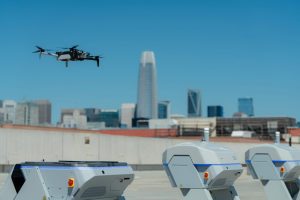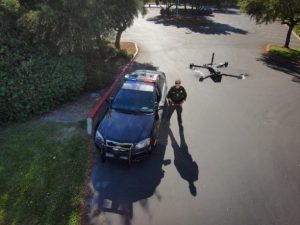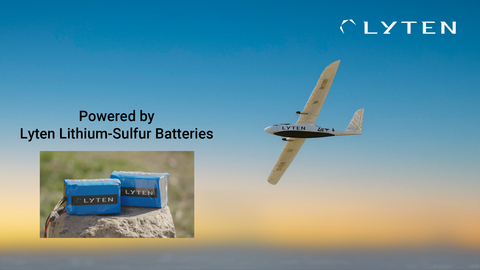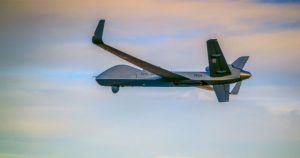Lyten Launches Next-Generation Drone Propulsion Initiative for National Security
Lyten, a pioneering company in supermaterial applications and a leader in lithium-sulfur batteries, has unveiled a groundbreaking initiative aimed at enhancing national security in the U.S. This new effort focuses on the demand for high-performance drones with extended endurance and operational ranges, specifically designed for defense applications, utilizing Lyten’s state-of-the-art ultra-lightweight lithium-sulfur (Li-S) batteries.
The firm is reallocating its manufacturing capabilities at its Californian facilities to cater to the unique requirements of U.S. defense, unmanned aerial vehicle (UAV), and satellite sectors. It is now accepting orders for its innovative lithium-sulfur battery intended for UAVs.
These domestically produced Li-S batteries are strategically positioned to help the Department of Defense address two critical modernization challenges:
- Minimizing reliance on foreign suppliers for essential minerals, components, and batteries.
- Facilitating the deployment of lighter, long-range, and more advanced UAV systems.
Dan Cook, Lyten’s Co-Founder and CEO, emphasized the increasing reliance on unmanned systems in defense initiatives and the prevalent dependency on materials from geopolitical adversaries. “We developed Lyten’s lithium-sulfur battery platform to resolve this issue, enabling lightweight, high-performance power sources manufactured locally in the United States,” he stated.
A newly released demonstration flight video showcased the efficacy of Lyten’s lithium-sulfur battery in a 3D-printed UAV constructed by Titan Dynamics in Los Angeles. During a flight in Palos Verdes, California, the drone, boasting an 8.5-foot wingspan, demonstrated operational excellence with over three hours of flight time, performing various maneuvers at speeds reaching up to 86 mph. Upcoming releases target flight durations of up to eight hours utilizing the Titan Dynamics platform.
Lyten’s lithium-sulfur batteries are free from commonly sourced materials like nickel, manganese, cobalt, and graphite, which are predominantly supplied by Chinese manufacturers. This ensures a compliant energy solution under the National Defense Appropriations Act (NDAA), designed to support defense platforms with higher energy density for longer flight times, heavier payloads, and broader operational ranges.
According to Celina Mikolajczak, Chief Battery Technology Officer at Lyten, lightweight propulsion is essential across various industries, from satellites to drones, electric vehicles (EVs), and micromobility solutions. The lithium-sulfur battery platform aims to enhance performance while circumventing materials restricted by evolving geopolitical and supply chain challenges.
Currently, Lyten is accepting orders for their latest lithium-sulfur battery specially designed for drones. Additionally, they have secured a contract with the Defense Innovation Unit to showcase these batteries aboard the International Space Station, with a launch planned for later this year. Lyten’s innovative solution is already achieving over 3,000 cycles suitable for satellite applications.
About Lyten
Founded in 2015, Lyten is a leader in the supermaterial applications field, having raised over $425 million in equity investments and obtained letters of intent for $650 million in financing from the Export-Import Bank of the United States. The company has created a proprietary material platform known as Lyten 3D Graphene, which allows for the production of high-performance, cost-effective, and sustainable products, including next-generation lithium-sulfur batteries.
Boasting over 520 patents granted or pending, Lyten operates manufacturing facilities in San Jose, California. Recently, they announced the acquisition of Northvolt’s battery production plant in San Leandro, expediting their capacity to meet the rising demand for American-made batteries. Looking ahead, Lyten plans to integrate their lithium-sulfur battery technology into various applications, including Chrysler’s Halcyon Concept electric vehicle and AEVEX Aerospace’s UAVs, along with a demonstration on orbit aboard the ISS scheduled for a 2025 launch.
Lyten has garnered accolades such as Fast Company’s #8 Most Innovative Energy Company and has been recognized by Time as one of America’s Top Green Technology Companies in 2024 and one of the World’s Top Green Technology Companies in 2025.
For more on this initiative and photography, visit the original article.
